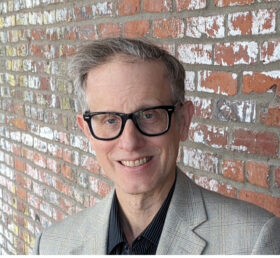System-affected academics are building a movement — and transforming the academy
By Grant Tietjen, author of Justice Lessons: System-Affected Scholars and the Future of Criminal Justice Transformation

In October of 2002, I was sitting in the commons area of a cellblock in the Federal Transfer Center in Oklahoma City, waiting my turn to catch a prison plane to my assigned penitentiary. It was always loud there, the commotion banging dully against the drab concrete walls—traumatized people maxing out their coping skills, angry guards yelling, and heavy metal doors slamming over and over again. I was both stressed out and exhausted, wired with anxiety.
The place seemed eternally lost, in another dimension from society or its sense of time. Men shuffled around the pod walkways in tired circles, their eyes fixed in blank stares. My response wasn’t a sophisticated academic pondering of time and eternity, but a desperate attempt to come to terms with my situation. It was bigger than me, and I, like many of those with whom I was locked up, felt overwhelmed and lost—the story of millions of men and women around the world.
Two years later, when I hit the streets, I was still lost. I was out of touch with society and those around me, still reeling from incarceration and struggling to figure out my place. Unsure if I could get a job or support myself and afraid of finding myself without options, I went back to college. It was, I thought, what people—friends and family—who lived happy lives did.
SAA groups were engaged spaces and many of us were activists for both individual and societal change.
But in college, things began to turn around for me. Just one person, a professor, took an interest in me and gave me a chance. She had worked with people who had been incarcerated and I felt I could trust her. So, I told her my story—what in my life had led me to prison and what I had experienced behind bars. We talked about how the study of criminology had entered academia and how graduate school might help lead me to a more fulfilling future. These were topics I had never considered.
My professor was the first of my numerous academic mentors, and just a few months later, I gave a presentation at an academic conference that included material about my prison experiences. After hearing my story, one audience member told me about a group of formerly incarcerated criminologists and encouraged me to reach out to them. This was my first contact with a network of scholars that I refer to as system-affected academics (SAA), a connection that changed my life and that I write about in my book, Justice Lessons: System-Affected Scholars and the Future of Criminal Justice Transformation.
In community with SAA, I was no longer the formerly incarcerated loner, afraid to tell my story. I was part of a group of dynamic and supportive students and scholars who shared similar backgrounds and perspectives—a new group of friends. I learned that it was normal to feel isolated and suffer from imposter syndrome. Many of us had faced bias, discrimination, and stigmatization. And I also learned how to do something about these problems. Our gatherings weren’t just gripe sessions. SAA groups were engaged spaces and many of us were activists for both individual and societal change.
My SAA peers invited me to get involved in advocating for a better world for formerly incarcerated and system contacted.
SAA groups, often in collaboration with higher education, are building educational and community initiatives and programs to provide support and resources for current and future aspiring scholars who are formerly incarcerated. We are working together on research projects to develop policies and programs to tear down barriers for system-contacted people. Our work involves many reciprocal processes of change and support. Just as our education influenced us, we seek to influence our spaces in colleges and universities across the country. Mentors helped me find my way, and now I, alongside many others, are doing our best to help today’s system-contacted people find theirs. SAA is a communal process: we work together and pull others up so they can access empowerment and prosper.
